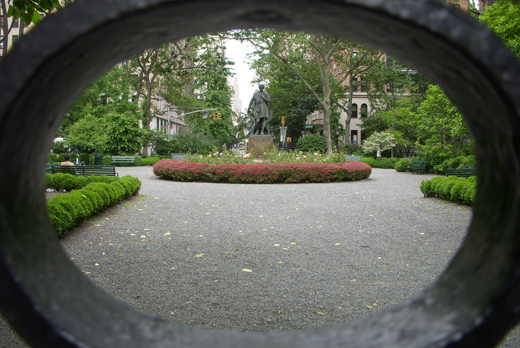Daily Office: Monday
¶ Matins: Read it and weep: the Pakistani government (and military) is not as committed as you might like it to be to getting rid of Taliban invaders.
¶ Lauds: Holland Cotter faults The Pictures Generation, a new show at the Museum, as bad history. All right, iffy history. But since when were museums in the business of history lectures?
¶ Prime: Julie Cresswell’s obituary for the Archway/Mother’s Cookie business ought to be read, at a minimum, by every still-solvent tycoon who’s thinking of establishing a chair at a “business school” (such as the one at Harvard).
¶ Tierce: I myself think that Terry Christensen was just doing his job, but if he’s not disbarred after the Marshall trial, it will mean that nobody is paying attention.
¶ Sext: Has the world really turned? Or is Jon Peters in fact the pipsqueak that this story suggests he is?
¶ Nones: Every time I read about the European Union, I think about this map — except that I didn’t even know it existed until just the other day.
¶ Vespers: “Real Men Don’t Eat Quiche, They Ride Hogs Over It“ — what is reviewer Dwight Garner trying to prove?
¶ Compline: Manhattanhenge Primo. Secondo comes in July. Between now and then, the sun will set to the north of the island’s east-west grid.
Oremus…
§ Matins. After reading Amhed Rashid’s piece about Pakistan in the current New York Review, it occurred to me that the collapse of Pakistan, still to come, is what we’re going to remember when we look back on this dark age in the Middle East. Kuwait, Lebanon, Gaza — all of that will climax in a truly terrible war that even Lost addictees and the people who love them won’t be able to overlook.
§ Lauds. Now that I’m armed with this great new word, “curating,” I wonder what intellectual outer borough Mr Cotter is living in. The Met’s job, in any case, is not to show us the artwork that’s historically important (God forbid) but the art that’s still interesting.
§ Prime. What the geniuses at B-schools around the country ought to be working on is how to keep a family business small when the family that currenctly owns it wants to sell it. Read this story carefully, and, if you differ, please let me know.
§ Tierce. Laura Italiano’s report contains the following love note to an ethics committee:
Christensen turned thumbs down on all of these schemes — but not before billing his client, who was in fact Astor, not Marshall, for the time spent looking into them.
Whatever happens to the glamorized principals in the “swindle suit,” as the Post so lovingly calls it, Henry Christensen’s story will be the one to follow. Brooke Astor was unique, but some lawyers spend most of their working lives in Mr Christensen’s ambiguous perplexity.
§ Sext. As everyone knows, Jon Peters decided that polishing the handle so carefully would be a bore, so he became Barbra Streisand’s hairdresser instead. Now, it seems, the former skylark is not interested in keeping Mr Peters in sailor suits, as Diana Rigg so beautifully put it decades ago.
§ Nones. Governments have two sets of functions. The principal one concerns the monopoly on taxes and violence. The other one, which requires an entirely different sensibility, concerns schools, roads, sewers, and other entirely local problems. Europe seems to be on course toward ripping taxes apart from violence. Let the Union make way; let each locality raise its own taxes. Our ideas about civic structures are far more conditioned by medieval hangovers that we are willing to acknowledge.
§ Vespers. Matthew Crawford’s book sounds inescapably important, but more important still would have been the book that he worked on with Richard Sennett.
§ Compline. Nobody grasps this town better than Joe Jervis. He has made a study of it, and he really knows.

